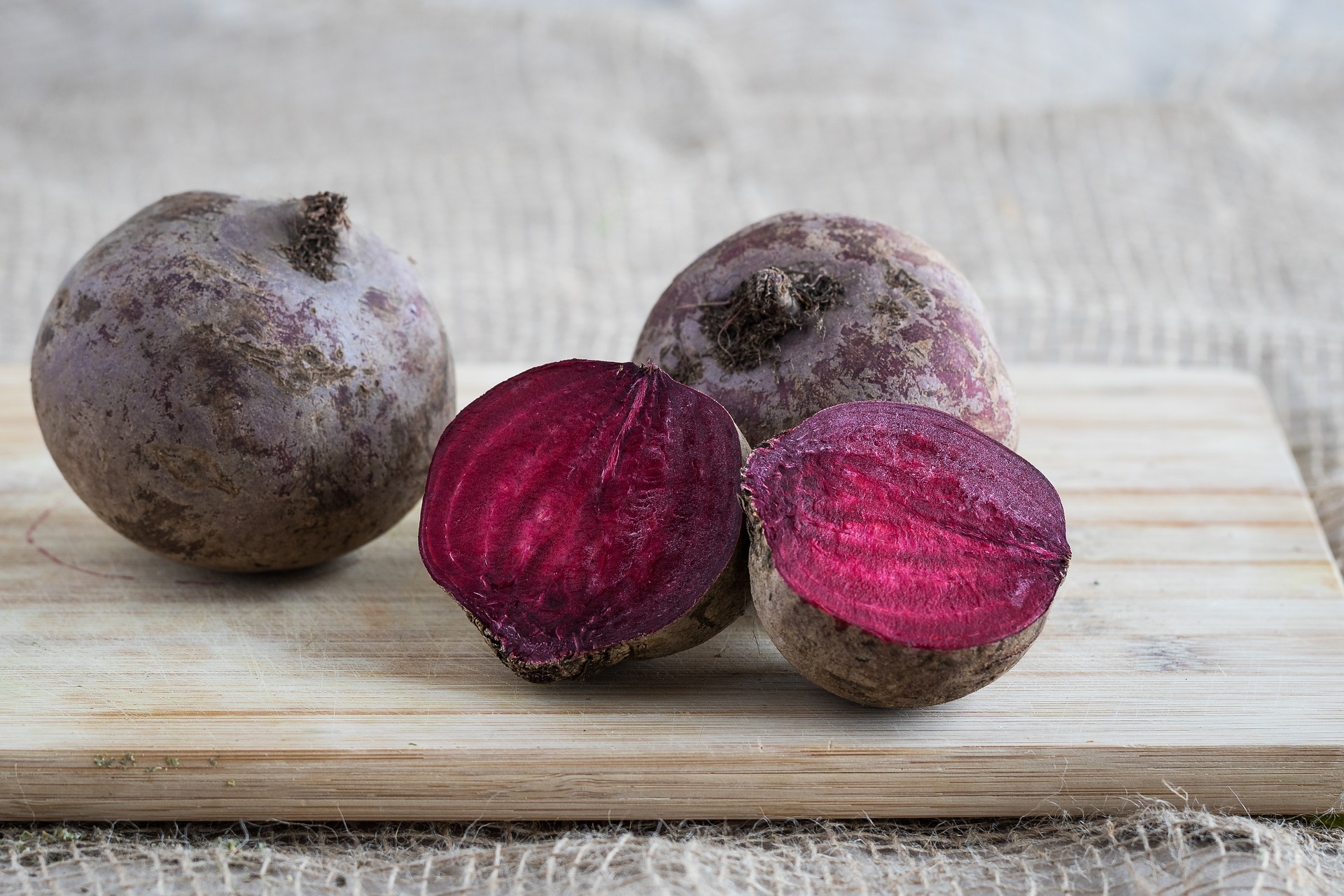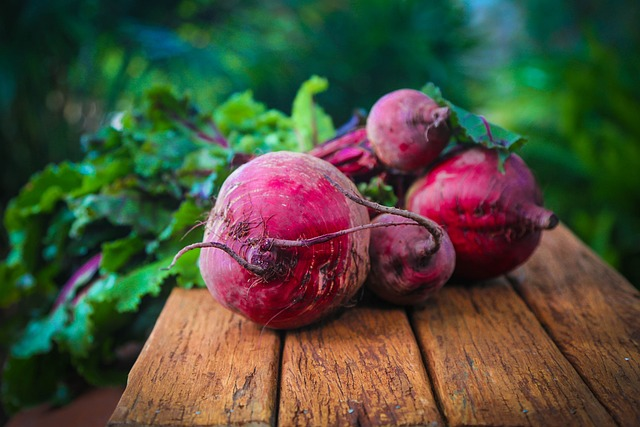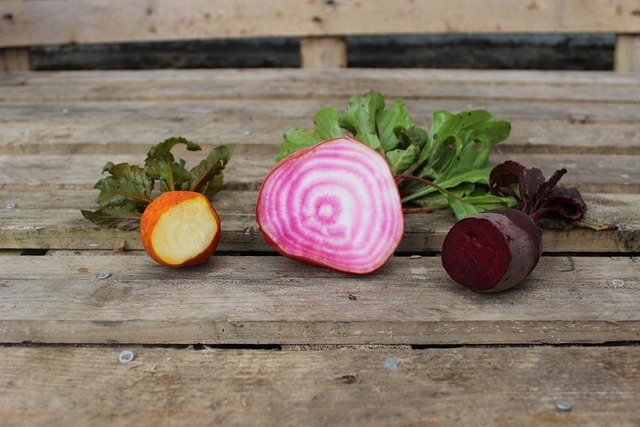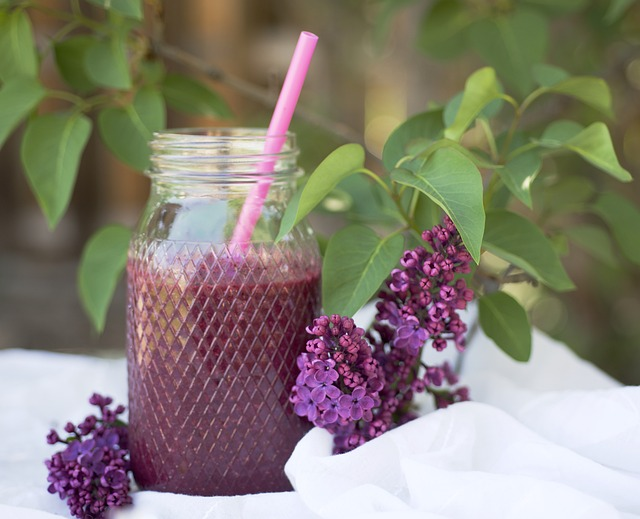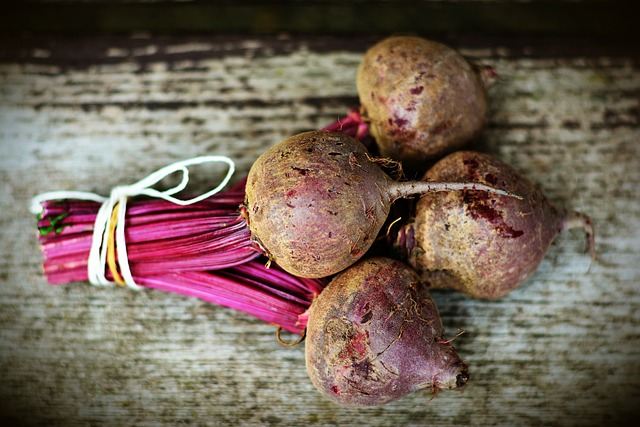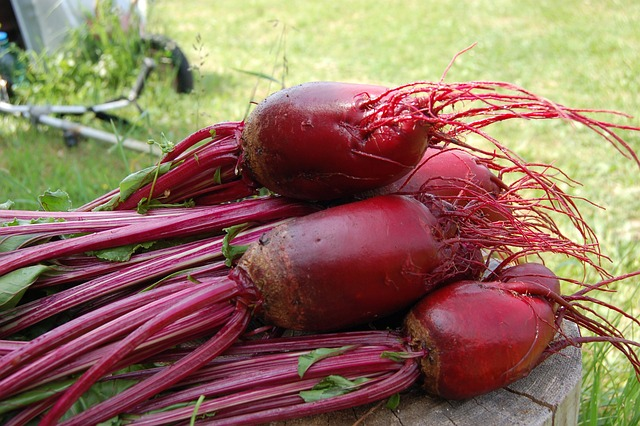Discover the Amazing Benefits from Beets
Beets are an incredibly nutritious and versatile vegetable that have been enjoyed for centuries, but in recent years their popularity has skyrocketed due to the growing awareness of their incredible health benefits. From improving recovery time after exercise to boosting immunity and helping to reduce blood pressure, this humble root vegetable can do a lot more than just add an amazing color to your salads.
In this article we will explore the amazing benefits of beets and how you can incorporate them into your diet. So read on to find out why these superfoods should become a part of your regular nutrition regime.
Nutritional Benefits of Beets
Beets are a powerhouse of nutrition, like a superhero in the vegetable world. What makes them so special? Let’s take a look. Beets have a glycemic index of 64 and a glycemic load of 4, making them low-calorie and low on the glycemic index. They are also packed with essential nutrients – 2.1 grams of protein per cup and 8.81% daily recommended fiber intake per cup – for proper digestion and to support healthy eating habits.
Beets come in an array of colors: classic reds and purples, as well as more unique yellows and goldens! Each type has its own set of beneficial compounds that provide different health benefits depending on their hue. Red beets offer heart-healthy antioxidants while yellow beets contain carotenoids which can help protect against certain cancers; purple beets boast anti-inflammatory properties while golden beets are rich in vitamin A for eye health! So no matter what color you choose, you’ll reap the rewards from these super veggies!
Beet Nutrition Facts
Beets are an excellent source of essential vitamins, minerals, and polyunsaturated fat. Pickled beets offer a nutritional powerhouse – 110 calories per cup, 0.1g fat, 252mg sodium, 27.5g carbs, 0.8g fiber, 11g sugars and 0.8g protein! Raw beets are typically higher in micronutrients like folate and potassium while cooked beets contain more carbohydrates and fiber – best paired with olive oil to absorb their nutrition benefits! Plus they contain betalains – unique phytonutrients that give them their deep red color plus anti-inflammatory properties too! So why not enjoy the health benefits of eating delicious beets?
Health Benefits of Beetroot
Beets have a plethora of health benefits – but what are they? From reducing blood pressure to improving athletic performance, beets have been studied for their potential to improve our wellbeing. Drinking beetroot juice has been shown to decrease systolic and diastolic blood pressure, as well as enhance blood flow.
Beets contain inorganic nitrates which can reduce the risk of heart disease, stroke and high blood pressure. They’re also a great source of dietary fiber that helps promote digestive health, suppress appetite and make us feel fuller for longer. Plus, the fiber in beets supports the growth of good bacteria in our gut – aiding digestion and preventing constipation!
Not only do beets benefit our hearts, but they can also boost physical performance too! Beet juice supplementation increases nitric oxide levels, which improves muscle circulation during exercise. Beets even possess anti-inflammatory properties thanks to betalains – a unique group of antioxidants that help fight inflammation. A human study confirmed this with a 38% reduction in lipid peroxidation after drinking beetroot juice!
In conclusion, beets are low calorie yet nutrient-rich foods that offer an array of health benefits from protecting your heart to boosting your workout routine! So why not add them into your diet today?
How to Add Beets to Your Diet
Beets are a powerful root vegetable packed with health benefits. Whether you enjoy them raw or cooked, beets can make a delicious addition to your diet. Raw beets offer an array of vitamins and minerals, while cooked beets have a milder flavor that can enhance any dish. Beet juice is also a great way to reap the rewards of this superfood – it’s full of dietary nitrates which may help reduce high blood pressure and improve athletic performance.
When it comes to eating beets, there are plenty of options! Smoothies, salads, soups – even roasted or boiled – the possibilities are endless. If you’re using fresh beets for cooking, remember to give them a good wash before getting started; if you’re using canned ones try not to add too much salt!
For those looking for an extra boost in their day-to-day life or during exercise sessions, beet juice could provide just what they need. This natural source of dietary nitrates helps lower blood pressure and improves oxygen use so it’s perfect for athletes who want an edge over their competition. To make your own beet juice at home, simply combine one or two freshly juiced beets with other ingredients like carrots apples and ginger – alternatively powdered forms are available as well!
Cooked Beets
Cooked beets have a milder, slightly sweeter flavor than raw beets and can be enjoyed in a variety of dishes. Boiling, steaming, roasting, and baking are all popular cooking methods for beets. Boiling is the quickest method, and steaming preserves the most nutrient content. Roasting beets in the oven can bring out their natural sweetness and pair nicely with goat cheese and balsamic vinegar. Baked beet chips are another popular way to enjoy beets. Slice the beets into thin pieces and bake them in the oven for a crunchy, flavorful snack.
Nutritionally speaking, cooked beets have less dietary nitrates than raw beets, but they are still a good source of vitamins, minerals, and natural sugars. Cooked beets are also easier to digest and can be more palatable for those who don’t enjoy the flavor of raw beets.
Raw Beetroot
Eating raw beetroot can provide a plethora of health benefits, including reducing inflammation, improving digestion, and supplying essential vitamins and minerals. Raw beets are also an excellent source of dietary nitrates which can help lower high blood pressure and enhance athletic performance.
Raw beets can be savored in many ways – diced in minestrone soup, grated on salads or artfully arranged on cheese plates – the possibilities are endless!
Raw beetroot can also be blended into smoothies and juices; however, its flavor may overpower other ingredients. To temper this taste sensation, mix it with apples, oranges, carrots or ginger for a delicious concoction.
Beet Juice
Drinking beet juice can be a real game-changer for your health. Like an extra boost of energy, it’s packed with dietary nitrates that help reduce blood pressure and improve oxygen use – perfect for athletes looking to up their performance.
Making beet juice is as easy as pie: just blend one or two beets with other ingredients like carrots, apples, and ginger. If you’re short on time, you can also find powdered beet juice in the fitness section of groceries or vitamin stores.
Beet juice is a great way to get all the benefits without the strong flavor of raw beets – plus it’s more versatile! Enjoy it solo or mix it into smoothies for a flavorful kick. So if you’re looking to give your brain and body an upgrade, drinking beet juice could be just what you need!
Beet Recipes
Beets are a delicious and nutritious way to add flavor and color to your meals. Not only are they packed with vitamins and minerals, but they also offer a range of health benefits. From roasted beet salad to borscht or even beetroot hummus, there’s no shortage of tasty dishes you can make with beets!
Roasted Beet Salad
Roasted beet salad is a scrumptious way to savor beets. To whip it up, you’ll need fresh beets, olive oil, garlic, lemon juice and feta cheese. Begin by preheating the oven to 375°F. Cut the beets into 1-inch cubes and spread them on a baking sheet. Drizzle with olive oil and season with garlic and salt before popping in the oven for 30-35 minutes or until tender.
Once cooked, remove from the oven and let cool down. In a large bowl combine the roasted beets with feta cheese and lemon juice then sprinkle some salt & pepper over it all before giving it a good toss together. Finally top off your salad with herbs like dill or parsley for an extra burst of flavor!
Roasted beet salad is not only simple but also full of flavor – plus packed with nutrition! Beets are bursting with fiber, folate & vitamin C, as well as being loaded with antioxidants – making them truly superfoods!
Borscht
Borscht is a beloved Russian soup that’s made with beets. To craft this delicious dish, you’ll need a medley of vegetables – beets, potatoes, carrots, onions, tomatoes and cabbage – plus beef broth. Begin by washing and peeling the beets before grating them into a large pot. Then add in the other veggies and pour in the beef broth.
Bring it to a boil then reduce to simmer for 45 minutes until all the vegetables are tenderly cooked through. Once ready, season with salt and pepper and serve up your steaming bowl of borscht! Not only is it hearty and flavorful, but also packed full of nutrition too – thanks to its star ingredient: beets! High in potassium, calcium and magnesium, as well as dietary fiber, this traditional soup is sure to satisfy both your taste buds AND your body!
Beetroot Hummus
Beetroot hummus is a delicious and nutritious dip that’s ideal for any gathering or snack. To make it, you’ll need canned chickpeas, cooked beets, tahini, garlic, lemon juice and olive oil. Begin by draining and rinsing the chickpeas before adding them to a food processor with the cooked beets. Pulse until smooth then add in the tahini, garlic, lemon juice and olive oil – processing until creamy. Finally season with salt and pepper before serving up this delicious treat!
Beetroot hummus is an incredibly flavorful and healthy dip that can liven up any occasion. Beets are brimming with iron and vitamin C, as well as being packed full of antioxidants – making them an excellent addition to your diet. From roasted beet salad to borscht or even beetroot hummus, there are plenty of ways to enjoy this delectable vegetable! Packed with vitamins, minerals and antioxidants, adding beets into your meals is a great way to get all the nutrition you need!
Risks and Side Effects
Beets are an absolute powerhouse of nutrition, but like any food, they come with a few risks. Have you ever stopped to consider the potential side effects of eating beets? It’s important to know what you’re getting into before diving in!
Beetroot contains oxalates which can contribute to kidney stones if you’re prone to them. Plus, their natural sugars called oligosaccharides can be hard for those on a low-FODMAP diet to digest. Allergic reactions are rare but possible if someone is allergic to beet pollen or has an existing food allergy – so it pays off to check first!
When cooking up some beets, remember that adding fat and calories is easy as pie (or should we say ‘easy as roasted beet salad’?). Roasting them in olive oil will do just that – so think twice about how you prepare your veggies!
Finally, eating too many beets could increase the risk of urinary tract infections, kidney stones or even kidney failure. So if you’re prone to these issues, it’s best not go overboard and chat with your doctor before increasing your intake.
At the end of the day, beets are delicious and nutritious – just make sure you know what comes along with them before digging in!
Summary
Beets are a vegetable that contains an abundance of beneficial vitamins, minerals, and phytonutrients. Eating beets is associated with a range of potential health benefits, including reduced blood pressure and risk of heart disease, improved athletic performance, decreased inflammation, and improved digestion.
Beets can be enjoyed in various forms, such as cooked, raw, juiced, or added to recipes for flavorful soups, salads, and snacks. Beetroot hummus provides a delicious and nutritious dip for any occasion, while roasted beet salad pairs well with feta cheese and other herbs for a healthy and flavorful meal.
Although consuming beets is generally considered safe and associated with health benefits, it is always important to consult with a healthcare provider before adding large amounts of any food or supplement to your diet. Be sure to research all potential risks and side effects before consuming beets, particularly if pregnant or nursing, and consider alternate methods of incorporating them into your diet.
Frequently Asked Questions
What are 3 health benefits of eating beets?
Eating beetroots provides numerous health benefits, including improved digestion and heart health. Beetroots are an excellent source of nutrient-dense carbohydrates, dietary fibre, and essential vitamins and minerals such as folate and potassium. Their nitrate content can also help to improve heart and vascular health.
Beets also contain powerful antioxidants which can help to reduce inflammation and protect against some diseases.
Is it ok to eat beets everyday?
Yes, it is OK to eat beets everyday. They are a great source of fiber, vitamins and minerals, and can be very beneficial for people with type 2 diabetes.
Moreover, studies have shown that eating 100 g (about 23 cup) of raw beets daily for eight weeks could result in improvements such as better cognitive function and improved glucose metabolism.
Why are beets a superfood?
Beetroot is packed with essential nutrients that bolster our immune system, improve cardiovascular health, and help fight inflammation. Rich in antioxidants and known for its heart-healthy benefits, beets are a superfood worthy of any Superstar’s diet.
What are the 10 benefits of beets?
Enjoying beets in your diet offers a range of significant health benefits, including increased fiber intake, improved cardiovascular health, antioxidant activity, support for healthy blood sugar levels and liver function, anti-inflammatory properties, enhanced athletic performance and recovery, as well as enhanced brain health.
All of this makes beets an incredibly nutritious addition to any meal.
What are the benefits of eating beets?
Eating beets offers numerous health benefits, from reducing inflammation to improved brain function and better digestion. Beets are also beneficial for lowering blood pressure and cholesterol levels, as well as their antioxidant effects that help prevent the development of certain cancers.
Additionally, beets’ protein and low calorie content can help with weight loss.

